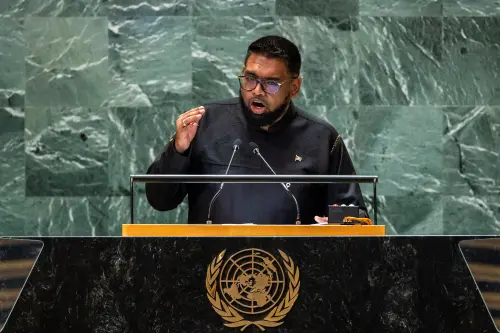On March 1, Guyanese President Irfaan Ali reported that a Venezuelan coast guard patrol had entered Guyanese waters that day, approaching an Exxon Mobil-managed output vessel in an offshore oil block. The two South American nations are engaged in a territorial dispute over the 160,000-square-km Esequibo area, currently under review at the International Court of Justice (ICJ).
President Ali stated that during this intrusion, the Venezuelan vessel got close to various assets in Guyanese waters, including the FPSO Prosperity. However, the Venezuelan government refuted Ali's claims, arguing that the waters they navigated were not within Guyana's territory pending proper delineation under international law.
In response, Guyana summoned the Venezuelan ambassador for discussions with the foreign minister, lodged a formal complaint with Venezuela, and planned to bring the matter to the ICJ and engage with international partners like CARICOM.
The Guyanese government also deployed unspecified air assets, while Venezuela urged Guyana to adhere to the 1966 Geneva agreement to resolve their border dispute.
The Organization of American States (OAS) condemned Venezuela's incursion into "Guyana's internationally recognized maritime territory." The United States Bureau of Western Hemisphere Affairs labeled the incident as a violation of Guyana's territory, warning of consequences for the Maduro regime if further provocations occur.
